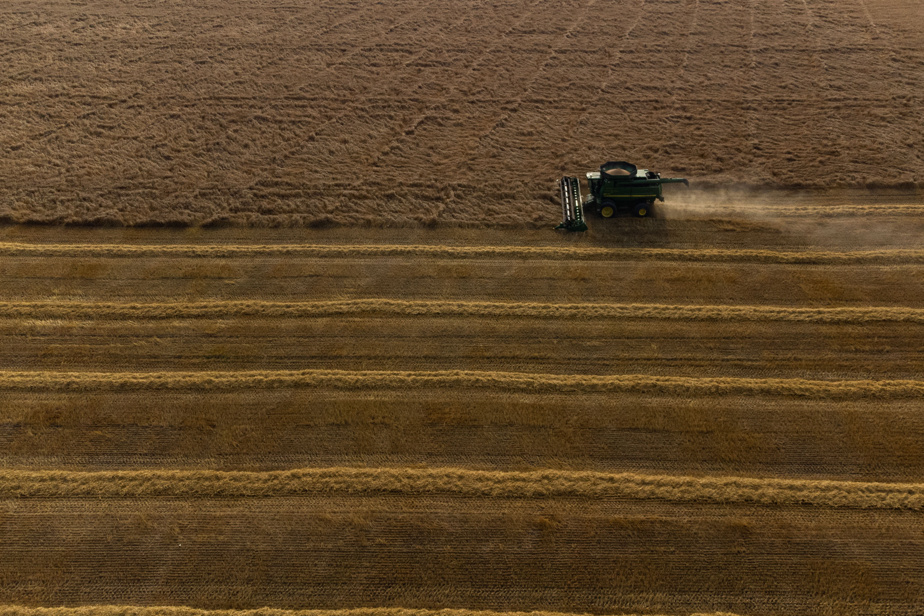Unlike traditional genetically modified organisms (GMOs), plants resulting from “genome editing” will not need authorization from the Canadian government before being planted in our fields. However, the seed industry is committed to creating a register to identify the varieties developed using this technology.
Federal Agriculture Minister Marie-Claude Bibeau made the announcement Wednesday during a virtual press conference. The establishment of this database is Ottawa’s response to the outcry of organic producers, who feared for their certification.

PHOTO JUSTIN TANG, THE CANADIAN PRESS ARCHIVES
Federal Agriculture Minister Marie-Claude Bibeau
“We found the way out,” explained Minister Bibeau about the registry. “It’s an industry commitment, it’s not a legal obligation,” she said later in English.
There are no gene-edited plants grown in the Canadian agricultural system yet. This new technology makes it possible to make changes to the existing DNA sequence of plants without inserting genes from another species, as is the case with so-called traditional GMOs. It makes it possible to attenuate, accentuate or extinguish the genetic traits that are already present in the plant.
Proponents of this approach see it as a revolutionary tool that will make crops more resilient to climate change or foods more nutrient-dense.
What is a GMO?
The federal government officially released a “guidance document” on Wednesday that aims to “interpret” Canada’s Seeds Regulations. Under these regulations, permission from the Canadian government must be obtained before releasing genetically modified seeds into the environment.
Minister Bibeau affirmed that “in the sense of science” plants resulting from genome editing are “clearly not” GMOs, because they do not involve “the introduction of external DNA”. Thus, they will not have to comply with the rules.
The database will be managed by Seeds Canada, the main association representing seed growers, distributors and retailers.
“The government is making a commitment to monitor this database with the complicity of a multi-sector committee,” said Minister Bibeau.
The organic sector wants a mandatory register
In addition to not using synthetic pesticides and chemical fertilizers, organic farming must guarantee that it does not use GMOs to obtain certification.
“All the organic certifications on the planet have the same rule: they do not authorize genome editing, they consider genome editing equal to a GMO”, explained Christian Legault, head of regulatory watch at the Quebec organic sector.
The latter regrets that the register is not compulsory. “All we’re asking for is traceability,” he says.
They will make it possible to market these products without any identification. But citizens would perhaps be interested to know, as a precautionary principle, what these products are. That way, the citizen will continue to have an option to choose if he wants it or if he doesn’t want it.
Christian Legault, responsible for regulatory monitoring at the Filière agricole du Québec
The Ecological Local Agriculture Cooperative, three-quarters of whose members are certified organic, has also denounced the concept of “voluntary transparency”. Its president, Léon Bibeau-Mercier, even called it a “kid’s patent”. “It kind of feels like it’s a way to drown the fish,” he explained.
“Without legal obligation, we are concerned that the data in an industry-maintained register may be incomplete or false since until proven otherwise, no binding corrective measures and no independent evaluation process are envisaged to ensure the integrity Datas. »
For her part, Minister Bibeau replies that she has honored her commitment. “Frankly, with any other government, gene editing would have been a long time large open and there would have been no protection of the organic sector. »
For Thibault Rehn, the coordinator of the pressure group Vigilance OGM, Minister Bibeau chose the industry camp.
“The federal government is delegating its responsibility for the evaluation and traceability of future GM crops to market and asking us to fully trust the industry that has pushed against mandatory transparency.”
The directive hailed by grain producers
The announcement also elicited positive reactions. The agricultural union of Producteurs de grains du Québec welcomed the publication of the guidelines for interpreting the regulations.
“This measure will strengthen producers’ ability to adapt to increasingly unpredictable weather conditions. Indeed, plant varieties resulting from genetic editing and being deemed safe by Health Canada, are notably designed to be more resistant to drought, extreme temperatures, diseases and pests”, declared their president, Christian Overbeek, in a press release.
“The product that comes out of the gene-editing process is exactly the same as if it had been done the traditional way with crosses. For the environment and for human safety and health, there is no difference, so why add years and millions of dollars of research to [autoriser] these products? added Pierre Petelle, CEO of Crop-Life Canada, a lobby that defends the interests of the seed, pesticide and fertilizer industry.
